The Ink Spots
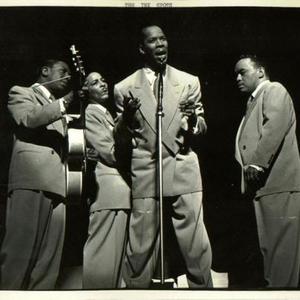
- Meta styles:
- Early R&B, Harmony Vocal Group, Vocal Pop
(1934-1954) The Ink Spots were a popular vocal group in the 1930s and 1940s that helped define the musical genre that led to rhythm and blues and rock and roll, and the subgenre doo-wop. They and the Mills Brothers, another black vocal group of the same period, gained much acceptance in the white community. Their songs usually began with a guitar riff, followed by the tenor, who sang the whole song through.
The Ink Spots were a popular vocal group in the 1930s and 1940s that helped define the musical genre that led to rhythm and blues and rock and roll, and the subgenre doo-wop. They and the Mills Brothers, another black vocal group of the same period, gained much acceptance in the white community.
Their songs usually began with a guitar riff, followed by the tenor, who sang the whole song through. After the tenor finished singing, the bass would either recite the first half, or the bridge of the song, or would speak the words, almost in a free form, that were not part of the song, commonly using the words "Honey Child", or "Honey Babe", expressing his love for his darling in the song. This was followed by the tenor, who finished up singing the last refrain or the last half of the song.
The Ink Spots formed in the early 1930s in Indianapolis. The original members were :-
Orville "Hoppy" Jones (b. 17 February 1902, Chicago, Illinois ? d. 18 October 1944, New York City) (bass) (Played cello in the manner of a stand up bass)[1]
Ivory "Deek" Watson (b. 18 July 1909, Mounds, Illinois ? d. 4 November 1969, Washington, D.C.) (tenor) (Played guitar and trumpet)
Jerry Daniels (b. 14 December 1915 ? d. 7 November 1995, Indianapolis, Indiana) (tenor) (Played guitar and ukulele)
Charlie Fuqua (b. 20 October 1910 ? d. 21 December 1971, New Haven, Connecticut)
(baritone) (Played guitar)
BILL KENNY
The voice that made them famous Bill Kenny (Mr. Ink Spot) was born June 12th 1914 in Philadelphia PA, and died Mar 23rd 1978 in New West Minister, British Columbia. When Bill Kenny joined the group in 1936 they were mostly a "Jive" ensemble, performing swinging uptempo songs. It wasn't until The Ink Spots 1939 recording of "If I Didn't Care" that Bill Kenny's voice began being regularly featured on Ballads, which it was until The Ink Spots disbanded in 1954. Bill Kenny has been listed as an influence by such great artists as Elvis Presley, Sam Cooke, Johnny Mathis, Sonny Till, and many others.
THE BEGINNING
As "Kyle and Charlie", Daniels and Fuqua had formed a vocal duo performing in the Indianapolis area around 1931. About the same time, Jones and Watson were part of a quartet, "The Four Riff Brothers", who appeared regularly on radio station WLW in Cincinnati, Ohio. In 1933, that group disbanded, and Watson, Daniels and Fuqua got together to form a new vocal, instrumental and comedy group, which was initially called "King, Jack, and Jester". They continued to appear regularly on radio in Ohio, and became a foursome when Jones was added to the group the following year.
In July 1934 they accepted a booking at the Apollo Theater, New York, supporting Tiny Bradshaw. At that point they changed their name to "The 4 Ink Spots" at the request of bandleader Paul Whiteman, to avoid confusion with his vocal group "The King's Jesters". Later that year, The Ink Spots achieved international success touring the UK with Jack Hylton's Orchestra, one review in the Melody Maker stating
? The sensation of the programme is the coloured quartette, the Four Ink Spots. They sing in a style something between the Mills Brothers and the Three Keys, and accompany themselves on three tenor guitars and a cello ? which is not bowed, but picked and slapped like a double bass. Their natural instinct for hot rhythm is exemplified in their terrific single-string solo work and their beautifully balanced and exquisitely phrased vocalisms. They exploit all kinds of rhythmic vocalisms ? straight solos, concerted, scat, and instrumental imitations. They even throw in a bit of dancing to conclude their act, and the leading guitarist simultaneously plays and juggles with his instrument. ?
?Melody Maker,
They first recorded for Victor Records in 1935, but although the group was growing rapidly in popularity their early record releases were not commercially successful. The following year Daniels left, and was replaced by Bill Kenny (b. 12 June 1914, Philadelphia, Pennsylvania ? d. 23 March 1978, Vancouver, British Columbia). Also in 1936, they appeared on the first NBC demonstration television programmes.
For the next two years, their popularity grew through radio programs and tours. After a series of unsuccessful recordings for Victor Records and Decca Records, they had their first smash hit with "If I Didn't Care", a song written by Jack Lawrence, on Decca, in 1939. They released such other Decca singles as "Address Unknown" (1939), "My Prayer" (1939), "When The Swallows Come Back To Capistrano" (1940), "Whispering Grass" (1940), "Do I Worry" (1940), "Java Jive" (1940), "Shout, Brother, Shout" (1942), "Don't Get Around Much Anymore" (1942), "I Can't Stand Losing You" (1943), "Cow-Cow Boogie" (1944 - with Ella Fitzgerald), "Into Each Life Some Rain Must Fall"/"I'm Making Believe" (1944 - both with Ella Fitzgerald), and "The Gypsy" (1946). Many of these records made # 1 on early versions of the US pop charts - "The Gypsy" was their biggest chart success, staying at the # 1 position for 13 weeks.
They also recorded for Grand Award Records (two records in 1955, one in 1956-1957 and one in 1958).
Their songs, "I Don't Want to Set the World on Fire", "Into Each Life Some Rain Must Fall" and "Maybe" are songs played on the in-game radio station Galaxy News Radio in the 2008 video game Fallout 3. "I Don't Want To Set the World on Fire" is also featured on the game's trailer, and opening for the game.
Megadeth also used a sample of "I Don't Want to Set the World on Fire" in their song "Set the World Afire" on the album So Far, So Good... So What!
Charlie Fuqua was drafted in 1944, and was replaced by Bernie Mackey. Hoppy Jones, an important personality to the group, died in late 1944, near the height of their popularity. Bill Kenny and Deek Watson then began feuding, leading to fragmentation in 1945, when Watson went on to form a group called the Brown Dots (which later became the 4 Tunes). He later formed a host of offshoot Ink Spots groups in the 1950s and 1960s. Watson's place was taken in the original group by Billy Bowen (born 3 January 1909 d. 27 September 1982), and Jones was replaced by Cliff Givens (who was replaced eventually by Herb Kenny, Bill's twin brother, consequently born on the same date and died 11 July 1992). Mackey left at this time and was briefly replaced by Huey Long.
SPLINTERING
Charlie Fuqua was discharged in 1945 and returned to the group later that year, replacing Huey Long. This lineup recorded into the early 1950s, when Herb Kenny left and was replaced by Adriel McDonald. Bowen left the next year and was replaced by Teddy Williams. Ernie Brown substituted for Williams for a short time. Fuqua parted with the group and was replaced first by Jimmy Cannady, then by Everett Barksdale. Fuqua would lead a separate Ink Spots group in the future.
Around 1954, Brown and Barksdale both left, making the group Bill Kenny, Adriel McDonald, new member Henry Braswell, and an unknown fourth member. At this point the group was invited to appear on The Ed Sullivan Show. Kenny agreed, but told the other members of the group that he could not pay them. The other members angrily left. Braswell was out and would never tour with any Ink Spots groups. Bill Kenny sang solo with an instrumental backing band (consisting of the returning Everett Barksdale, Harry Prather, and Andrew Maze), touring as "Bill Kenny and his Ink Spots". This group appeared on Ed Sullivan, angering Sullivan enough to bill the group last.[3] Kenny later performed with Joe Boatner's Ink Spots in the summer of 1962. The group's pianist at the time of the split was Fletcher Smith, he would later perform in Orlando Roberson's Ink Spots.
Starting sometime in 1953, the Ink Spots group formed by Charles Fuqua was recording for King Records. This group probably consisted of Charles Fuqua, Jimmy Holmes, Harold Jackson, Leon Antoine and Isaac Royal (personnel listed on the actual 45 rpm recording of "Changing Partners"/"Stranger in Paradise", King #45-1304). They recorded popular tunes of the day such as "Ebb Tide" (1953), "Changing Partners", "Stranger in Paradise" (1954) and "Melody of Love" (1954, 1955). Their 1954 version of "Melody Of Love" was recorded prior to the Billy Vaughn version which was released in late-1954 and became a #1 hit in 1955 and so was re-released in 1955.
The only other link to the original group was Adriel McDonald. He continued touring with a new group: the returning Huey Long, Walter Springer, and Orlando Roberson. Henry Baxter later replaced Springer. In the late 1950s, Roberson and Long were out (both would perform with and lead other Ink Spots groups), and former Clover John "Buddy" Bailey and Abel De Costa were in. McDonald and De Costa became the group's only consistent members through the 1960s. Bob Williams replaced Bailey and Jimmy McLin replaced Baxter. Later both were out, and William "Frosty" Pyles and former Raven Joe Van Loan were in. Then these two were replaced by Richard Lanham (later Grant Kitchlings) and Matt McKinney.
At this point, McDonald fell ill and the group split.[5] McDonald did not tour further with any Ink Spots groups. De Costa joined Bernie Mackey's group (which had already existed for some time). McKinney joined Bob Williams Ink Spots (new at this time). Kitchlings would join Mackey's group (at a later date than De Costa). Note, however, that several other members that had left the group at earlier times, notably Charlie Fuqua and Deek Watson, had started their own Ink Spots groups by this time.[4]
Legitimate members of the Victor and Decca group included Jerry Daniels, Bill Kenny, Deek Watson, Charlie Fuqua, Hoppy Jones, Bernie Mackey, Huey Long, Cliff Givens, Billy Bowen, Herb Kenny, Adriel McDonald, Ernie Brown, Teddy Williams, Jimmy Cannady, Bob Benson, Asa "Ace" Harris, Bill Doggett, Ray Tunia, Harold Francis, Fletcher Smith, Henry Braswell, Everett Barksdale, Curtis McNair and Harold Jackson, Simon Pico Payne, Biggy McFadden. As far as is known, these are the only singers and accompanists who deserve to be called "original" Ink Spots (that is, those who were in the group that recorded for Victor and Decca), although dozens, possibly hundreds, of others have claimed that honor over the decades. Some singers have tenuous ties to Deek Watson's or Charlie Fuqua's offshoot groups; many, with no credentials whatever, just claim to be "original" members. Huey Long died at his Houston home on June 10, 2009. As far as is known, the only surviving member of the Decca group is Harold Jackson, who is currently living in Pasadena, California.
The Ink Spots were the subject of a 1998 book by Marv Goldberg: "More Than Words Can Say: The Ink Spots And Their Music". The group was inducted into the Vocal Group Hall of Fame in 1999. The Ink Spots were even inducted into the Rock and Roll Hall of Fame, as influences, in 1989; this induction consisted of Bill Kenny, Charlie Fuqua, Deek Watson, and Hoppy Jones.
At the time of his death at the age of 105 on June 10, 2009, Huey Long was the last surviving member of the group.
- Sort by
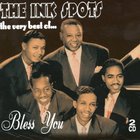
Bless You CD2
- Year:
- 2003
- Tracks:
- 20
- Bitrate:
- 128 kbps
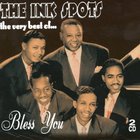
Bless You CD1
- Year:
- 2003
- Tracks:
- 20
- Bitrate:
- 128 kbps
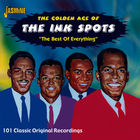
The Golden Age Of The Ink Spots: The Best Of Everything CD4
- Year:
- 2002
- Tracks:
- 26
- Bitrate:
- 320 kbps
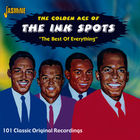
The Golden Age Of The Ink Spots: The Best Of Everything CD3
- Year:
- 2002
- Tracks:
- 25
- Bitrate:
- 320 kbps
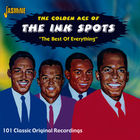
The Golden Age Of The Ink Spots: The Best Of Everything CD2
- Year:
- 2002
- Tracks:
- 25
- Bitrate:
- 320 kbps
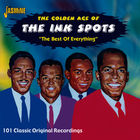
The Golden Age Of The Ink Spots: The Best Of Everything CD1
- Year:
- 2002
- Tracks:
- 25
- Bitrate:
- 320 kbps
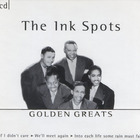
Golden Greats CD3
- Year:
- 2002
- Tracks:
- 25
- Bitrate:
- 320 kbps
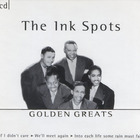
Golden Greats CD2
- Year:
- 2002
- Tracks:
- 24
- Bitrate:
- 320 kbps
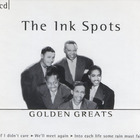
Golden Greats CD1
- Year:
- 2002
- Tracks:
- 25
- Bitrate:
- 320 kbps
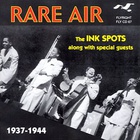
Rare Air: The Ink Spots Along With Special Guests (1937-1944)
- Year:
- 2001
- Tracks:
- 25
- Bitrate:
- 192 kbps
 The Deep River Boys
The Deep River Boys  Louis Jordan
Louis Jordan  The '5' Royales
The '5' Royales  The Clovers
The Clovers  The Delta Rhythm Boys
The Delta Rhythm Boys  The Ravens
The Ravens  The Golden Gate Quartet
The Golden Gate Quartet  The Mills Brothers
The Mills Brothers  The Orioles
The Orioles  The Charioteers
The Charioteers  The Platters
The Platters  Ella Fitzgerald
Ella Fitzgerald  Cab Calloway
Cab Calloway  Rivals
Rivals